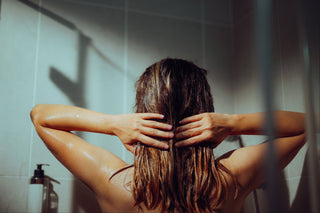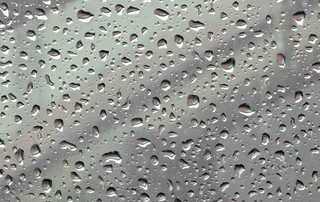Tap water is quietly affecting scalp health across the UK.
Our latest Hard Water Hair Report uncovers a problem hiding in plain sight. Hard water is something most people have heard of, but far fewer truly understand how directly it’s linked to scalp irritation, flakes and confidence.
Hard water isn’t just about limescale on kettles, it’s quietly influencing daily habits and confidence. Two in three people feel confident they’re cleaning their scalp properly, yet only 54% believe their hair is genuinely healthy, and 52% report experiencing dandruff. Despite this uncertainty, the majority are attempting to manage issues alone: 62% are already spending on specialist products, but 82% have never sought medical or professional advice.
The result is a nation stuck in trial-and-error mode… aware there’s a problem, but unsure how to take the right next step.
Hard water regions that are struggling most
In London, the South East and the East of England, more than 71% of people say their local water makes their scalp feel dry, itchy or prone to flakes. These also happen to be the hardest water regions in the UK.
Regional comparison

Across the country, scalp discomfort is more common than most people realise. Three in four Brits have experienced dandruff, irritation or eczema. Symptoms that many have normalised rather than addressed.
For some, it can be more than a mild inconvenience, for others it’s more serious, with one in four Brits actively avoiding social plans because of it. Among those aged 18 to 24, it becomes even more behaviour-shaping, with 68% admitting they’ve tried to conceal their scalp with hats or strategic styling.
It’s not just a comfort issue, it affects confidence
People are choosing what to wear based on whether flakes will show. 29% of people aged 18 to 44 have avoided social events because of their scalp. In London, this is even higher, with 31% saying they have done this.
Why does hard water make it worse?
Hard water leaves mineral residue on the scalp that blocks moisture and makes irritation harder to calm. In winter, cold air outside and heating indoors dry the scalp further. Many people respond by washing more often, but this can strip the scalp and increase irritation.
Most people are using the wrong products
59% of Brits don’t know what coal tar is, even though it is one of the most effective treatments for dandruff, psoriasis and eczema. Many are relying on fragranced cosmetic shampoos that only mask flakes instead of treating the cause. Polytar Medicated Scalp Shampoo contains 4% Coal Tar Solution and is clinically proven to help manage persistent conditions such as dandruff, psoriasis, eczema and seborrhoeic dermatitis.
It does this by slowing excess skin cell growth and calming inflammation at the root, instead of simply masking the problem.
Expert insight
“I see patients every week who have spent far too much time trying shampoo after shampoo, but still come in embarrassed to wear dark clothing or frustrated that their scalp is sore and itchy. It’s heartbreaking, especially during a cost of living crisis, to see people wasting money on products that don’t treat the underlying problem. The colder months can significantly affect scalp and hair health due to the drop in ambient humidity, exposure to cold winds and the drying effects of indoor heating. These environmental changes can lead to scalp dryness, flaking and irritation, while also making the hair fibre more brittle and prone to breakage.”
- Marta Teixeira, trichologist and dermatology nurse

What needs to change
Scalp health is often dismissed as cosmetic. But when one in four people are changing how they live socially, it becomes a genuine wellbeing issue. Understanding hard water, and using a medicinal treatment like Polytar, rather than cosmetic fixes, is how people start to break the cycle.







